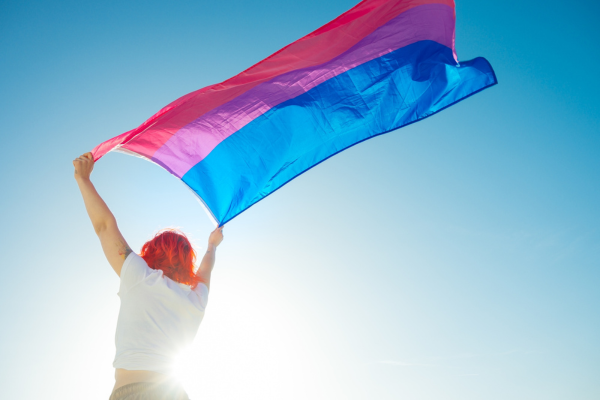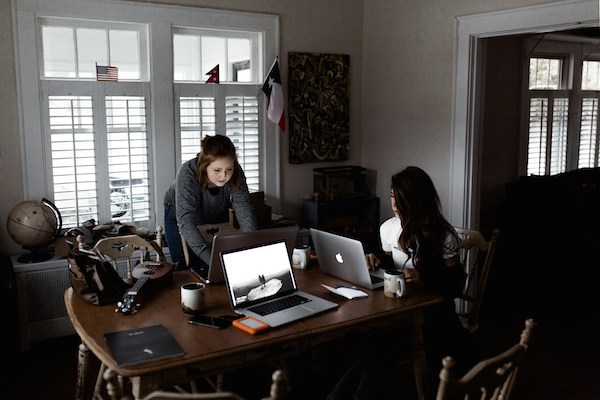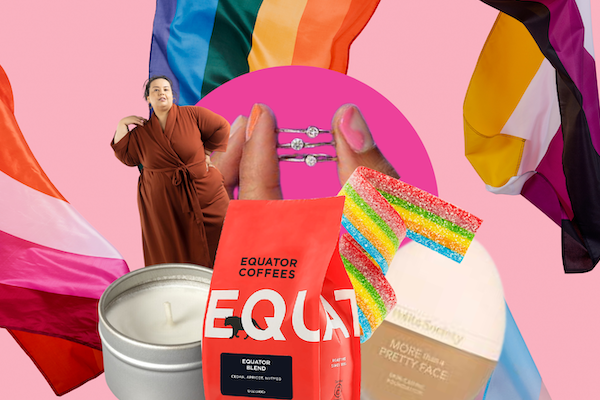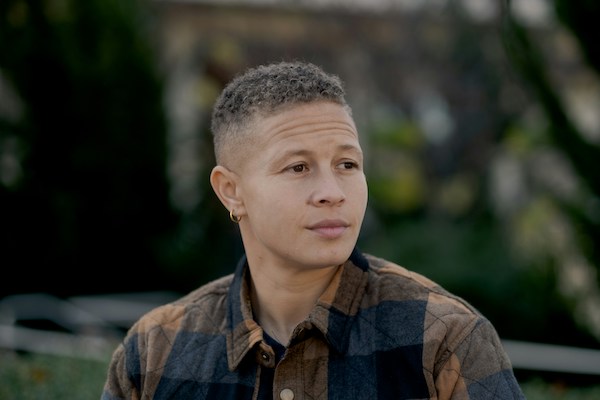
Sapphics Are Television’s Side Gays—And It’s Not OK
August 3, 2023
Sapphic Easter Eggs in New Red, White & Royal Blue Movie
August 14, 2023I scan the dimly-lit café for my date. I am in my early twenties and newly out, hair freshly cropped. I am nervous – do I really belong here? Am I being read as queer? And I am not alone. Bisexuality queers gender and sexuality in so many ways, so why do we constantly not feel queer enough?
“Bisexual as in attraction to the same and different genders,” is my definition of my identity, inspired by Dr. Julia Shaw’s Bi: The Hidden Culture, History, and Science of Bisexuality. It is also the answer I give when I am asked how I identify. Sometimes, it arises during a biphobic book club discussion – “is the author queer if she’s married to a man?” Sometimes, it is reassurance to other bisexuals, those pressed to act on attraction in order to live up to the idea of a hypersexed bisexuality. The one that says that we, as femmes, are straight until proven sexually active.
Our behaviors are not our attractions. Shaw says that bisexuality in of itself “destabilizes the gendering of sexual choice.” Naturally, queer people view sexual acts that were once criminalized as resisting, as celebrations of love. We owe ourselves grace in the form of nuance. Bisexuals are either having too much sex or are not having the right type of sex; we’re insatiable or we’re indecisive. I remember my first encounter with the word – a Facebook message. A high school friend was asking if I’d “had my bisexual phase yet? xD”
All I’d learned about bisexuality by the time I entered undergrad was that it was 1) a phase, and 2) obligatory for femmes. As a late bloomer, the compulsion to have sex, to figure this out immediately so I could justify my identity, was an immense burden. This is nothing new; conservative politicians across the global West hypersexualize queer people in order to demonize them. The way that queer people describe themselves is expansive, so why reduce ourselves to sex?
Sherronda J. Brown defines “compulsory sexuality” (after “compulsory heterosexuality”) in Refusing Compulsory Sexuality: A Black Asexual Lens On Our Sex-Obsessed Culture as “the idea that sex is universally desired as a feature of human nature” and that humans are “obligated to participate in sex at some point in life.” Sex is not essential for self-awareness. Vaneet Mehta tells us, in Bisexual Men Exist, how, in the context of patriarchal society, “phallocentrism” – that is, relationships to penises – dictates sexuality. In this approach, there is only a binary view of sexuality and gender. Masc? Any interest in penises means you’re gay. Femme? You’re only into women to get a man’s attention.
Sapphics have long experienced the pressures of sexualization, even in their own communities. Bisexuals have been called “fence sitters,” viewed as “failed lesbians” or “experiments,” ostracized by both straight and queer people alike.
This isn’t to say that sex can’t be lovely and validating. Queer sex can bring so many kinds of fulfillment to the body and soul. But doesn’t it also feel right to long for your college crush and the fantasy of sharing a smile over cheap drinks? Even single, you are shaping queer futurity
Bisexuals, you are enough. Add those pink, purple, and blue heart emojis to your Instagram bio. Take up space, tell us about the love you have in you, the one that reaches into all corners of existence and expression. It counts.





